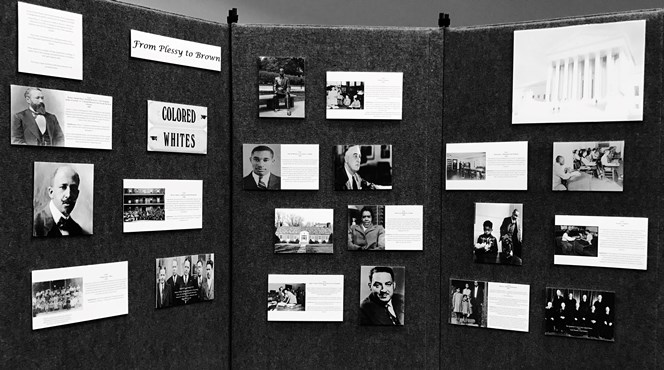
Preview

Creation Date
1954
Description
The Court overturned Plessy v. Ferguson, and declared that racial segregation in public schools violated the Equal Protection clause of the 14th Amendment.
That same day, the Court held that racial segregation in the District of Columbia public schools violated the Due Process clause of the 5th Amendment in Bolling v. Sharpe. The Court scheduled arguments on remedy in Brown for October but eventually put them off until April of 1955.
Significance: The Court ruled that state-sanctioned segregation of public schools was a violation of the 14th Amendment and was, therefore, unconstitutional. In the wake of the decision, the District of Columbia and some school districts in the border states began to desegregate their schools voluntarily.
State legislatures in Alabama, Georgia, Mississippi, South Carolina, and Virginia adopted resolutions of "interposition and nullification" that declared the Court's decision to be "null, void, and no effect." Various southern legislatures passed laws that imposed sanctions on anyone who implemented desegregation, and enacted school closing plans that authorized the suspension of public education, and the disbursement of public funds to parents to send their children to private schools.


